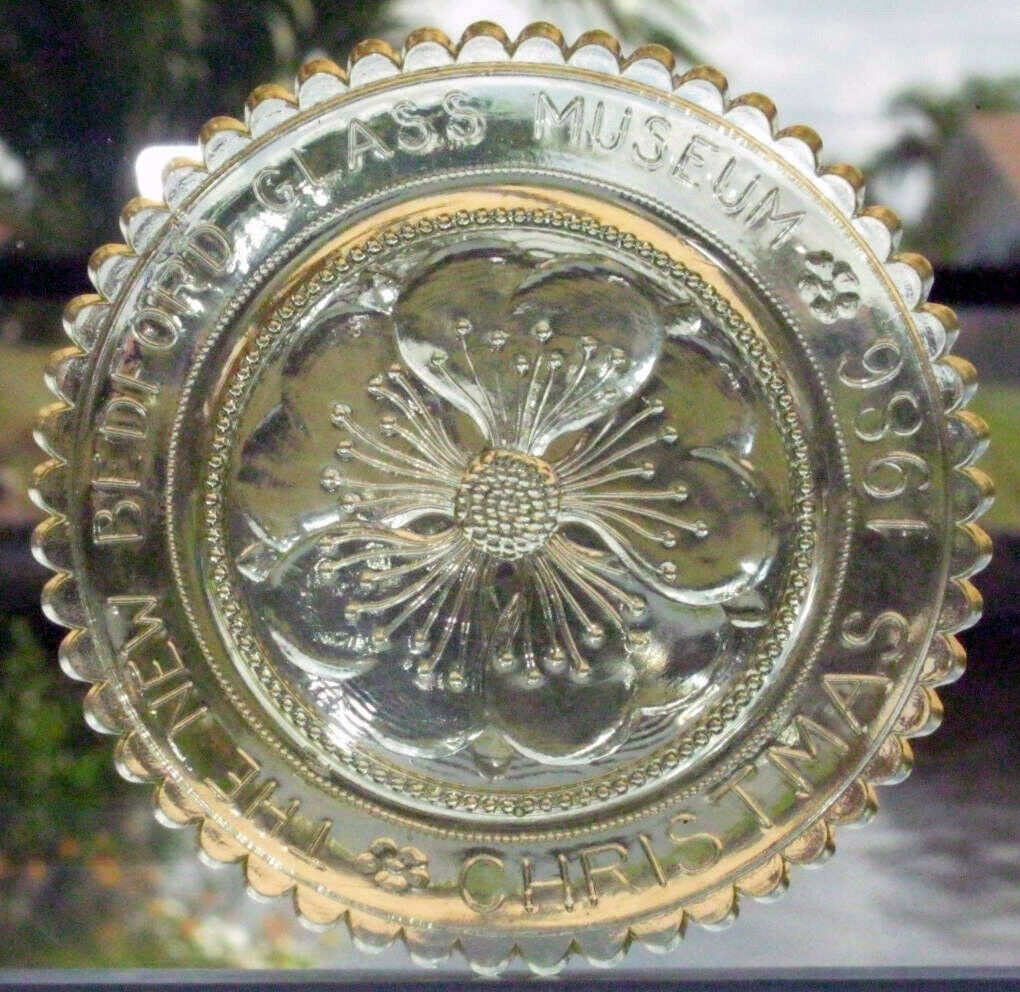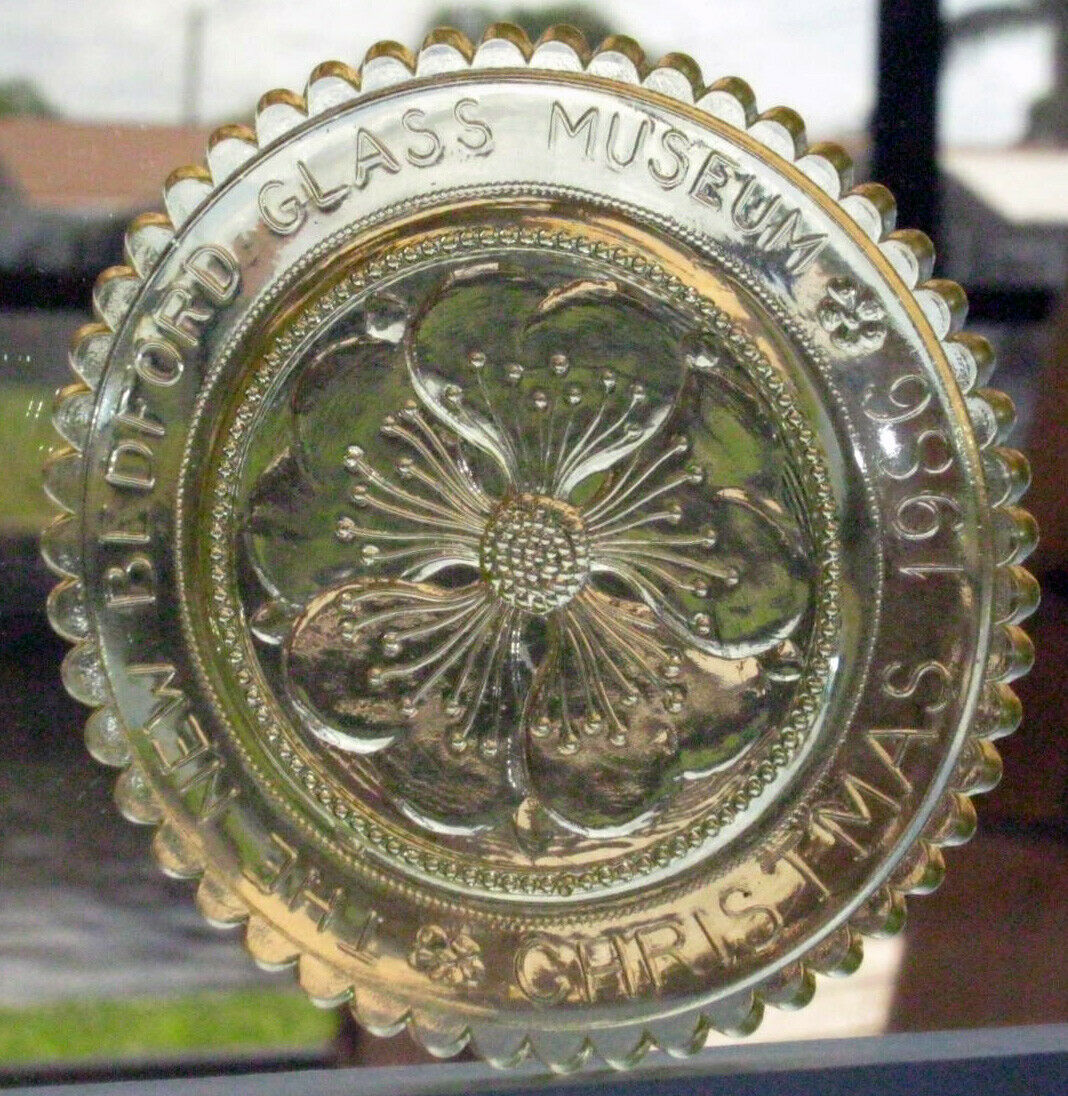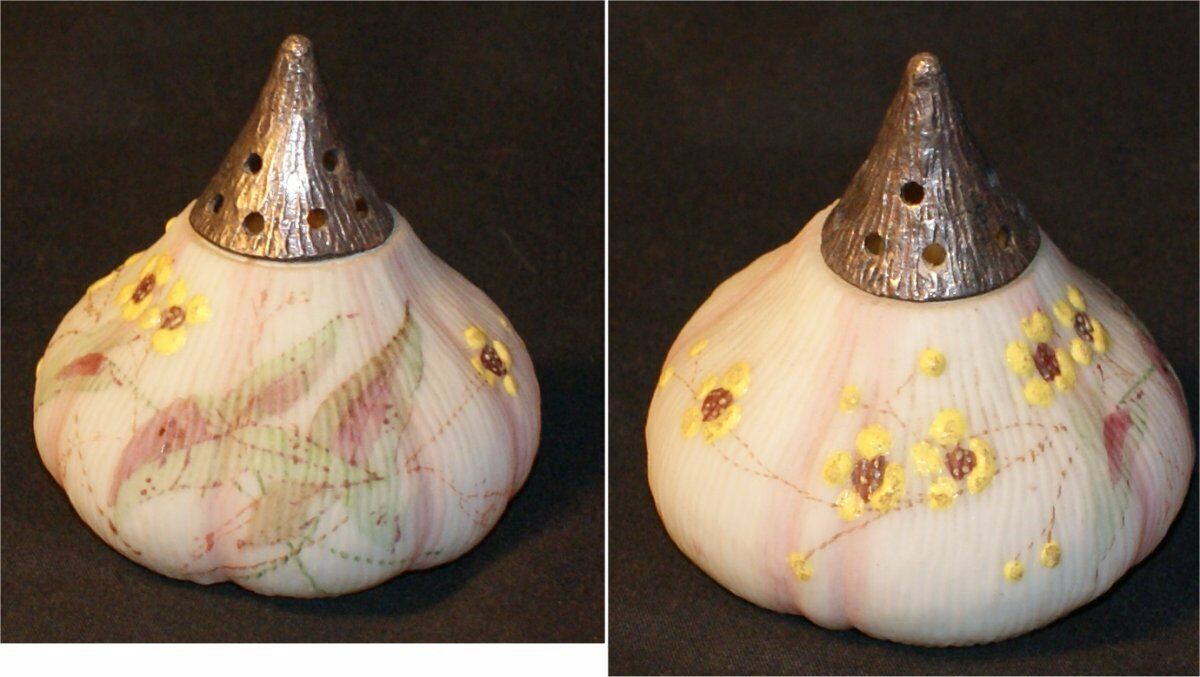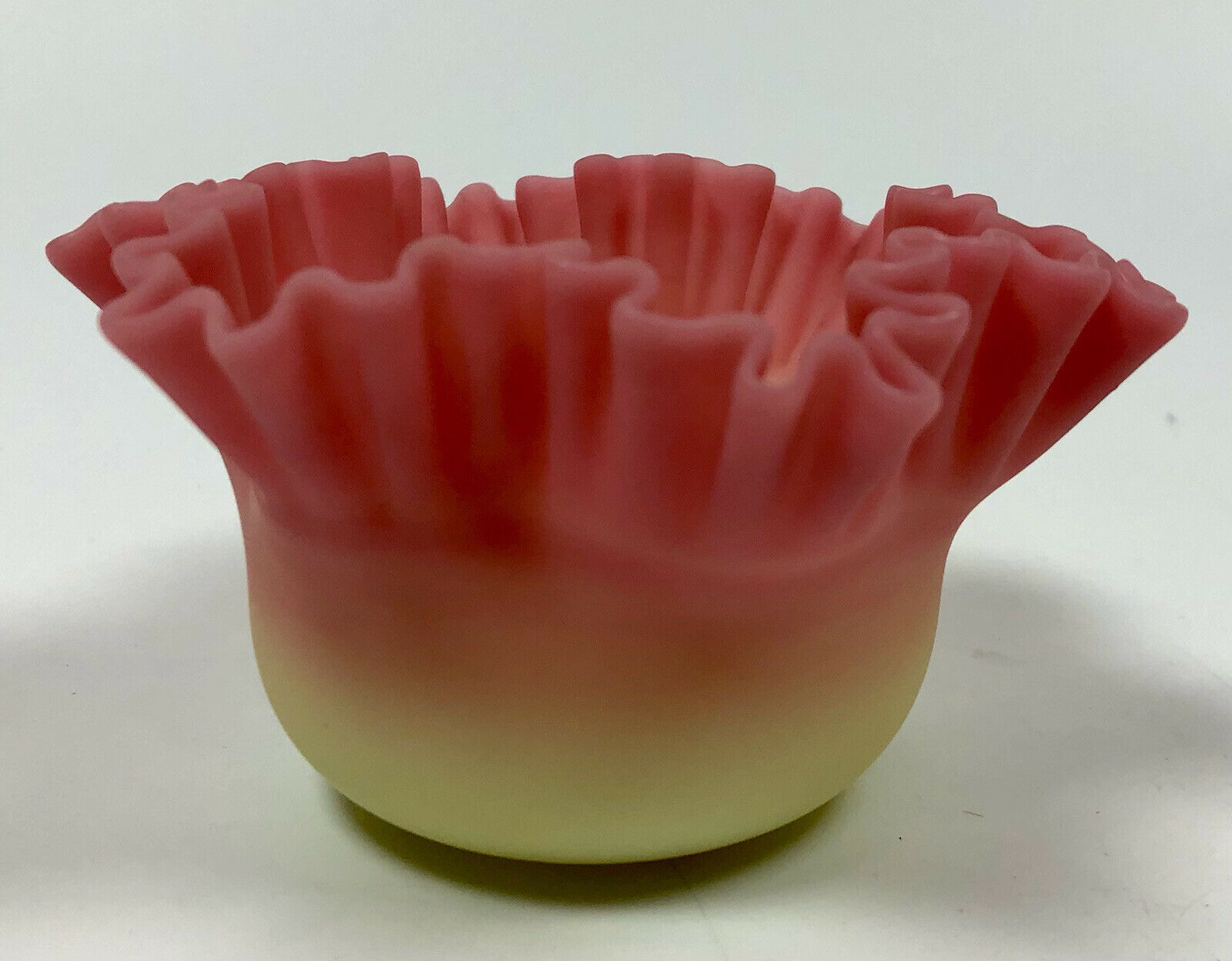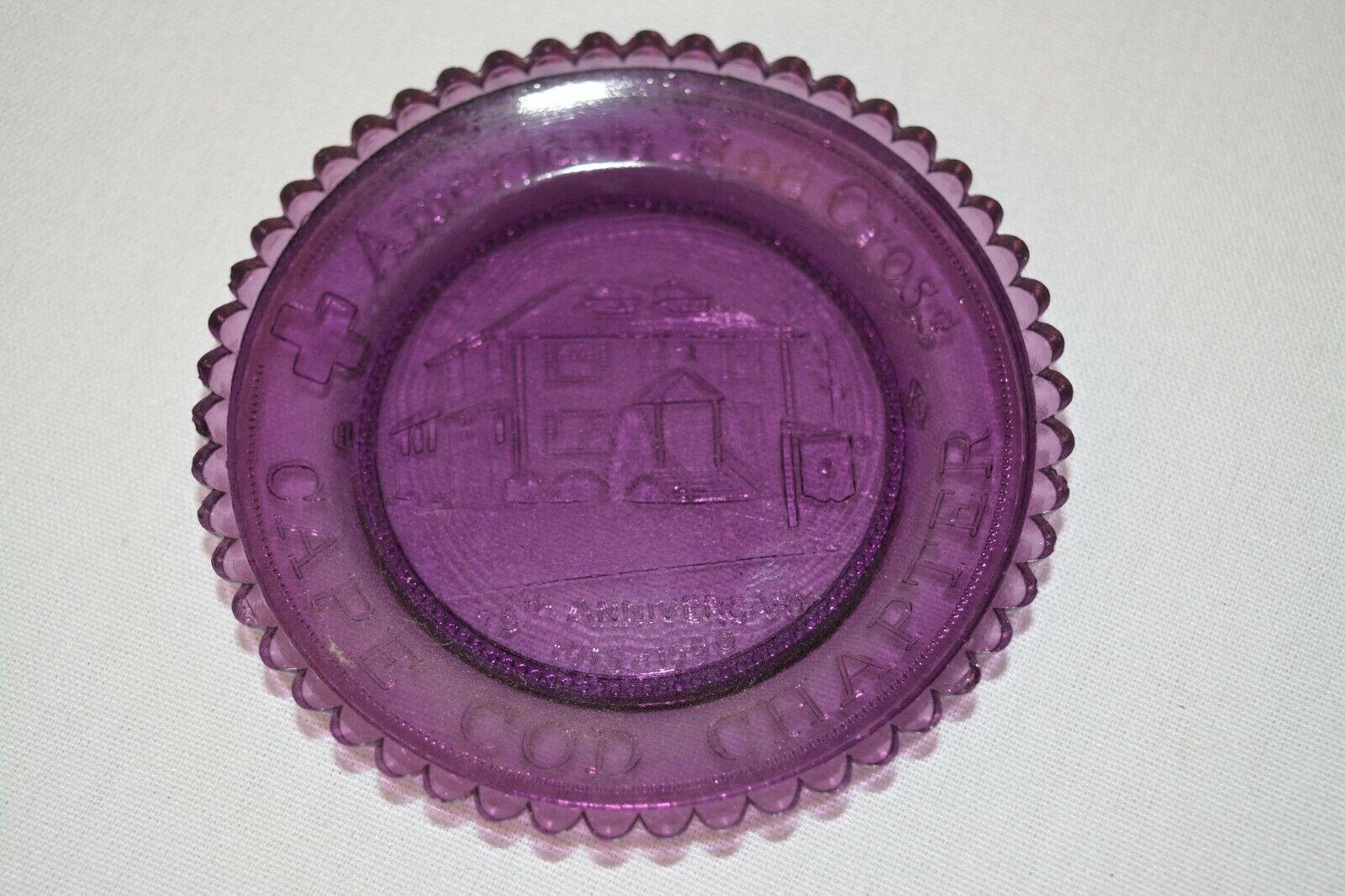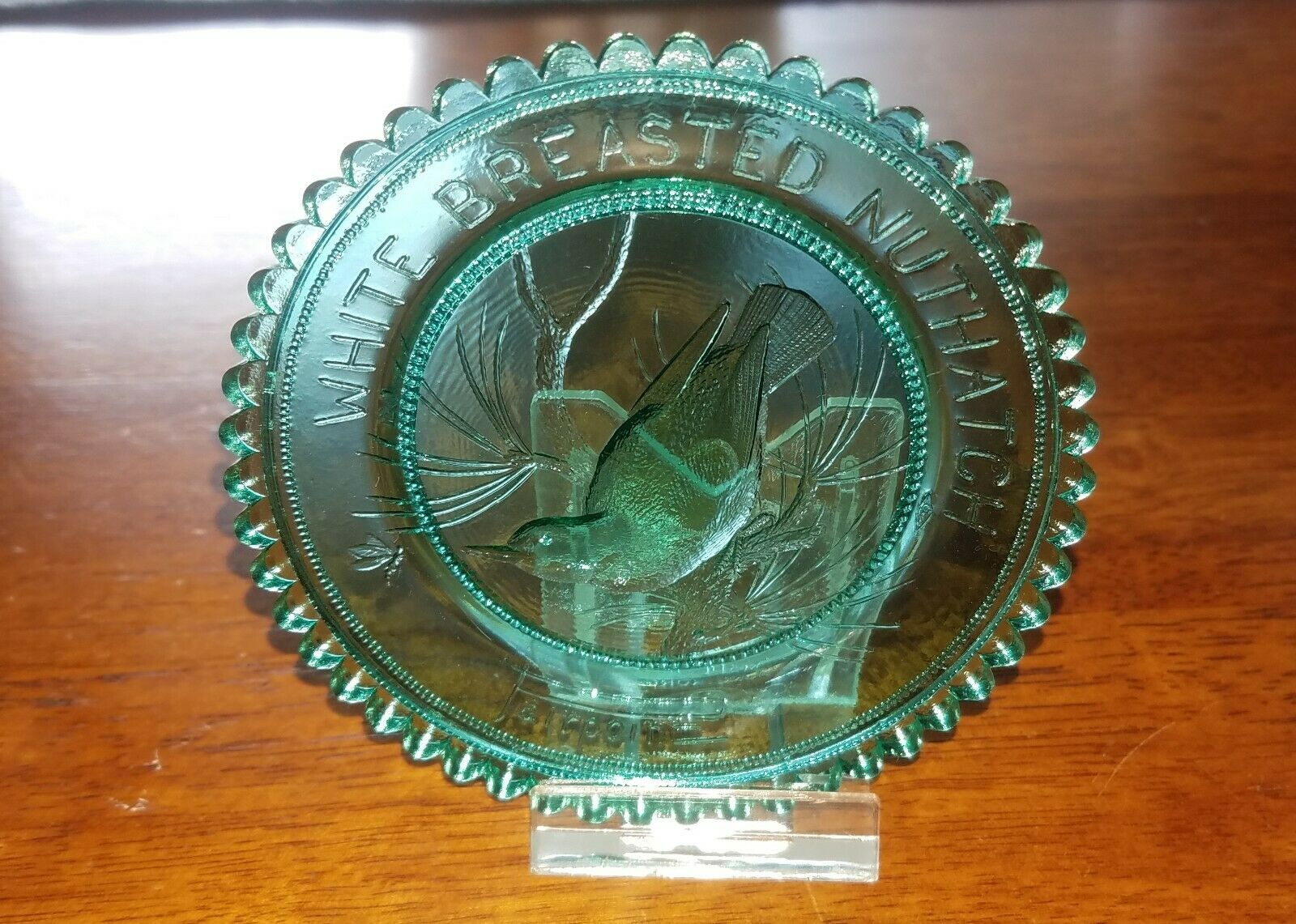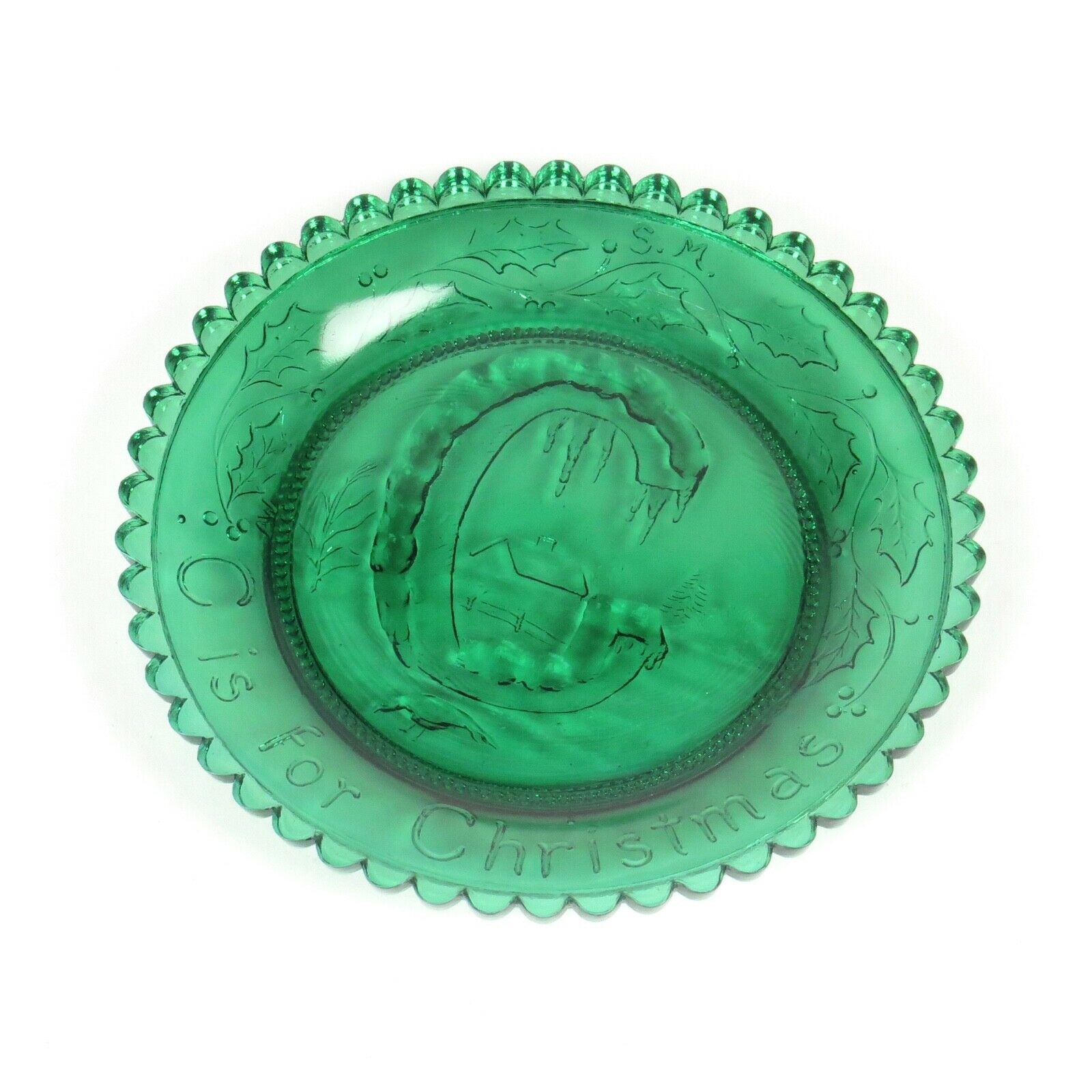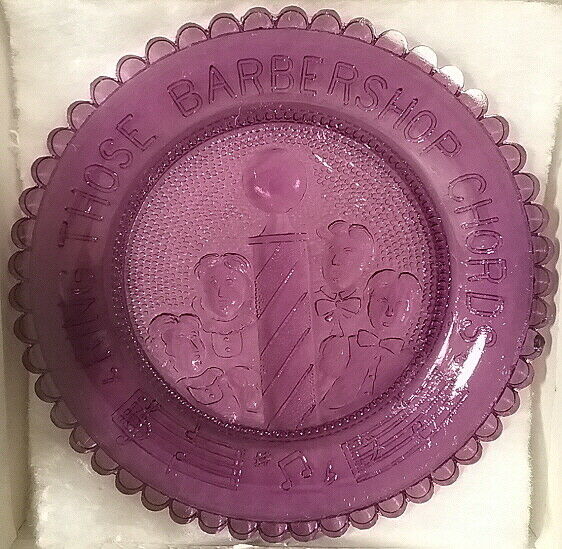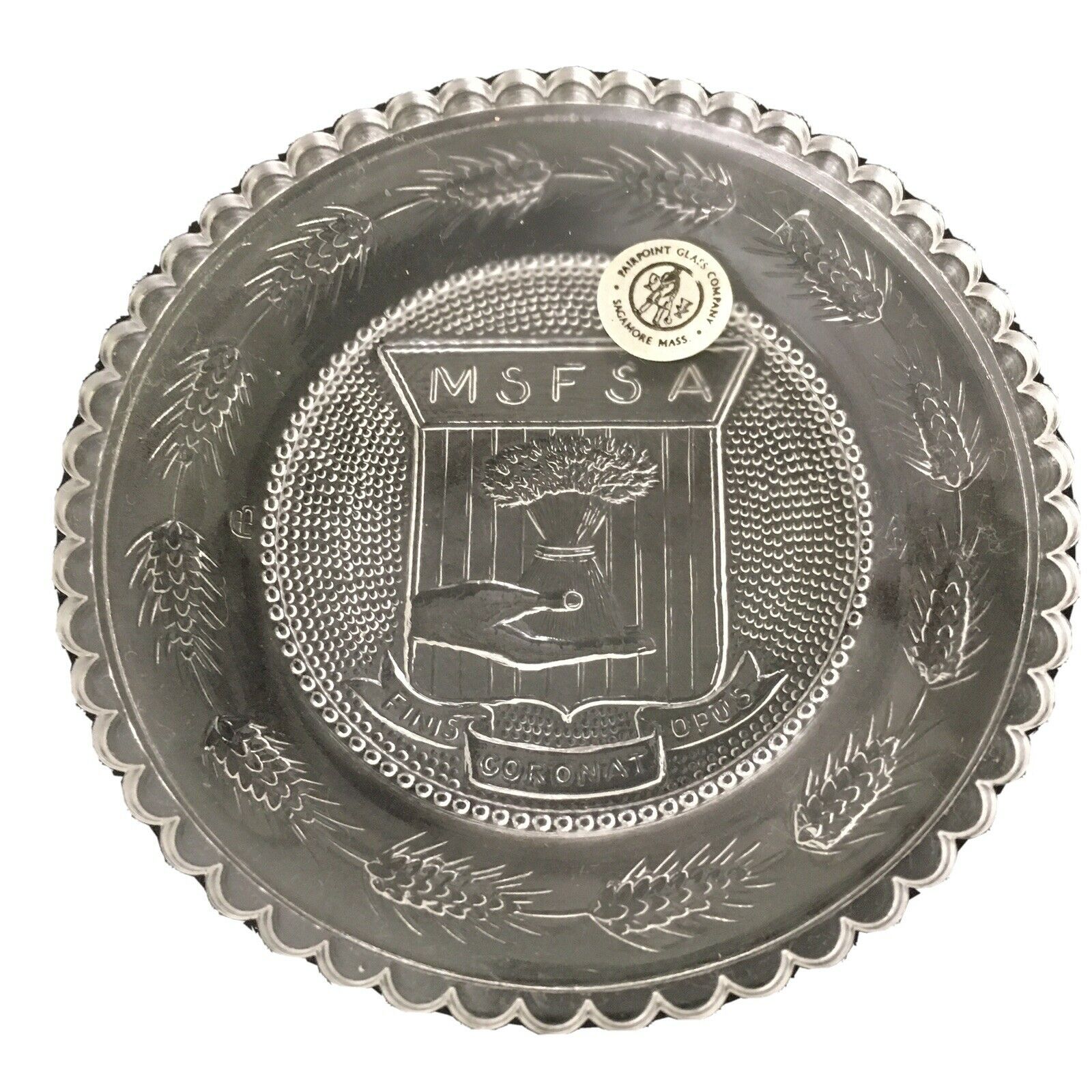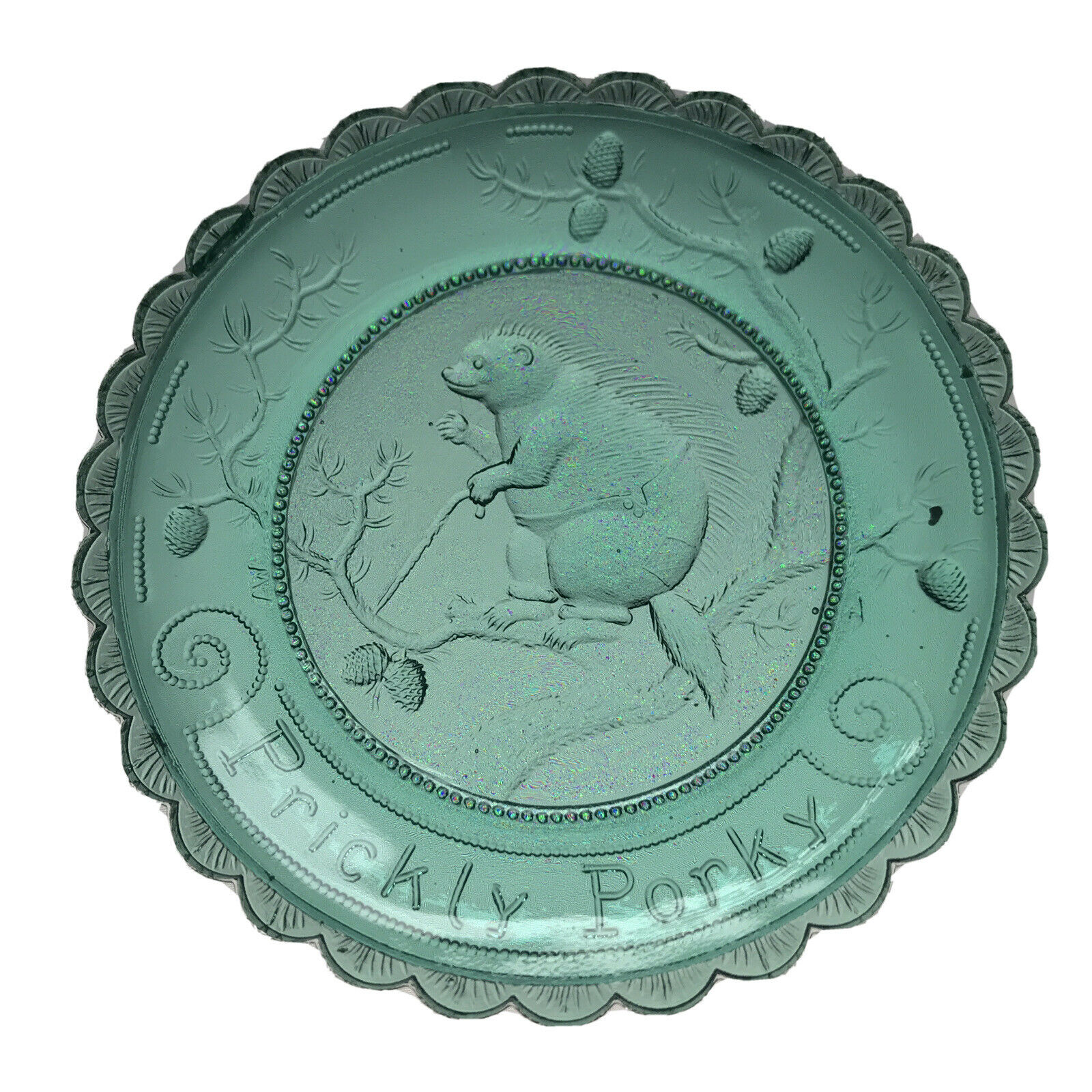-40%
Christmas 1986 - The New Bedford Glass Museum - Pairpoint Cup Plate - Yellow
$ 3.14
- Description
- Size Guide
Description
Pairpoint“
Christmas – 1986
” – The New Bedford Glass Museum – Cup Plate –
in excellent condition – no box
Yellow color with rim (see photos in the listing)
On a window sill, these cup plates capture the sun beautifully, further accentuating the intricate designs & color.
The company was founded by Deming Jarves in 1837 in South Boston, Massachusetts, as the Mount Washington Glass Works. Jarves had previously founded the New England Glass Company in 1818. Mount Washington did not at first have an official name, and until around 1850 was informally known as Russell's Glass House, after Luther Russell, the glasshouse superintendent. The first known use of the Mount Washington name was in the 1857 publication
History of South Boston
.
[3]
In 1870, Mount Washington relocated to New Bedford, Massachusetts. That year, the company was briefly renamed W. L. Libbey & Company, before being incorporated as the Mount Washington Glass Works the following year.
[
In 1876, the name was changed slightly, to the Mount Washington Glass Company.
From 1876 through 1881, the company produced an extensive line of lighting goods and other glassware, including glass chimneys, fine cut blown glass and pressed glassware.
[3]
In the 1880s, the company primarily produced
art glass
. In 1885, it introduced Burmese art glass, a translucent, heat reactive glass that shades from yellow at the bottom to pink at the top. The company became known for this type of glass, obtaining a British patent for it in 1886, and presenting a number of Burmese pieces to Queen Victoria.
In 1880, British silver designer Thomas Pairpoint (1838-1902) resigned his position as head designer at the Meriden Brittania Company and founded the Pairpoint Manufacturing Company, which was established in New Bedford as a silver manufacturer supplying Mount Washington with silver-plated metal mounts for its glass lamps and other products. In 1894, the two companies merged and in 1900 were renamed the Pairpoint Corporation.
In 1939, the company was reorganized as Gundersen Glass Works, named after master glassblower and new owner Robert Gundersen. After Gundersen's death in 1952, the company became the Gundersen-Pairpoint Glass Works until 1957, when it was renamed a final time to Pairpoint Glass Company.
[10]
Now under the guidance of Robert Bryden, it ceased operations at its New Bedford plant and relocated briefly to East Wareham, Massachusetts. The company moved overseas in 1958 to leased facilities in
Spain
, exporting limited quantities of stemware, perfume bottles and paperweights back to the US. Pairpoint returned to the US in 1967, and in 1970 opened a newly-built factory in Sagamore, Massachusetts, near the Cape Cod Canal.
App. 3.5" Diameter -
What are cup plates? They were widely used in the 18
th
and early 19
th
century. Hot tea was served in handleless cups and poured into saucers to cool. Tea was drunk from the saucer while the cup was placed on a cup plate to protect the table.
Each Pairpoint cup plate is hand pressed in 34% lead crystal. Individual variations between pieces are the hallmark of hand pressed crystal. Bubbles and sheer marks are often caused by the process of hand gathering the crystal and are indigenous to the 19
th
century production methods employed.
Shipping to USA Addresses Only -- Payment via
PayPal
Only
Please contact me first before returning any item or leaving feedback if there are any problems via e-mail. The buyer has 30 days to return the item
in original box and packing material
.
Thanks,
Dan
